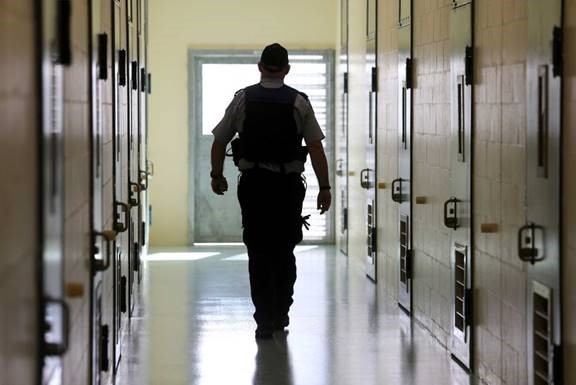COVID-19 and Prisons: Are Governments Doing Enough to Protect Prisoners?
Earlier this week, National Cabinet agreed on a set of national guidelines to deal with the risk of COVID-19 spreading in prisons.
The states and territories agreed to provide personal protective equipment to prisoners as a priority, but only when more supplies are available and only if COVID-19 is found in prisons. National Cabinet also decided to create “safe travel plans” to help Indigenous prisoners return safely to their communities upon release from jail.
However, some advocates are arguing that keeping people in prison during the coronavirus pandemic is like sentencing them to death.
Debbie Kilroy from Sisters Inside, a prisoner advocacy group, has warned that there will inevitably be an outbreak in a prison, and it will have serious consequences. Prison staff are coming and going from prisons and, she argues, if a staff member brings the virus into a prison, it will spread in the same way that it has spread on cruise ships.
Ms Kilroy has said that prisoners are concerned for their welfare. She says they are lacking essentials such as soap to protect themselves from COVID-19 and argues that National Cabinet’s guidelines are “window dressing” and not enough is being done to protect the health of prisoners.
Corrections authorities have a duty of care to prisoners and staff
The Supreme Court of Victoria recently found that Corrections were not fulfilling their duty of care to prisoners. Authorities had failed to observe some hygiene guidelines to reduce the risk of prisoners contracting COVID-19.
Correctional officers are also at risk if there is an outbreak among prisoners and there are concerns that they are not being provided with enough personal protective equipment.
What could be done to address these concerns?
There have been calls for more personal protective equipment to be supplied to prisons.
Ms Kilroy wants independent boards to be established and provided with the ability to release some prisoners for the duration of the pandemic.
Dr Thalia Anthony from the University of Technology Sydney suggests that prisoners could be released into home detention or hotel rooms.
Dr Anthony notes that in New South Wales, laws have been passed in response to the pandemic to allow for the release of prisoners and reduce overcrowding. However, she says that the laws have not been properly applied to achieve this purpose, with no “systemic release” of prisoners taking place.
As COVID-19 restrictions are gradually eased, Dr Anthony is concerned that there could be further outbreaks of coronavirus and that prisons are particularly at risk. Along with other legal experts, she is calling on state and territory governments to quickly implement reforms to protect prisoners.





